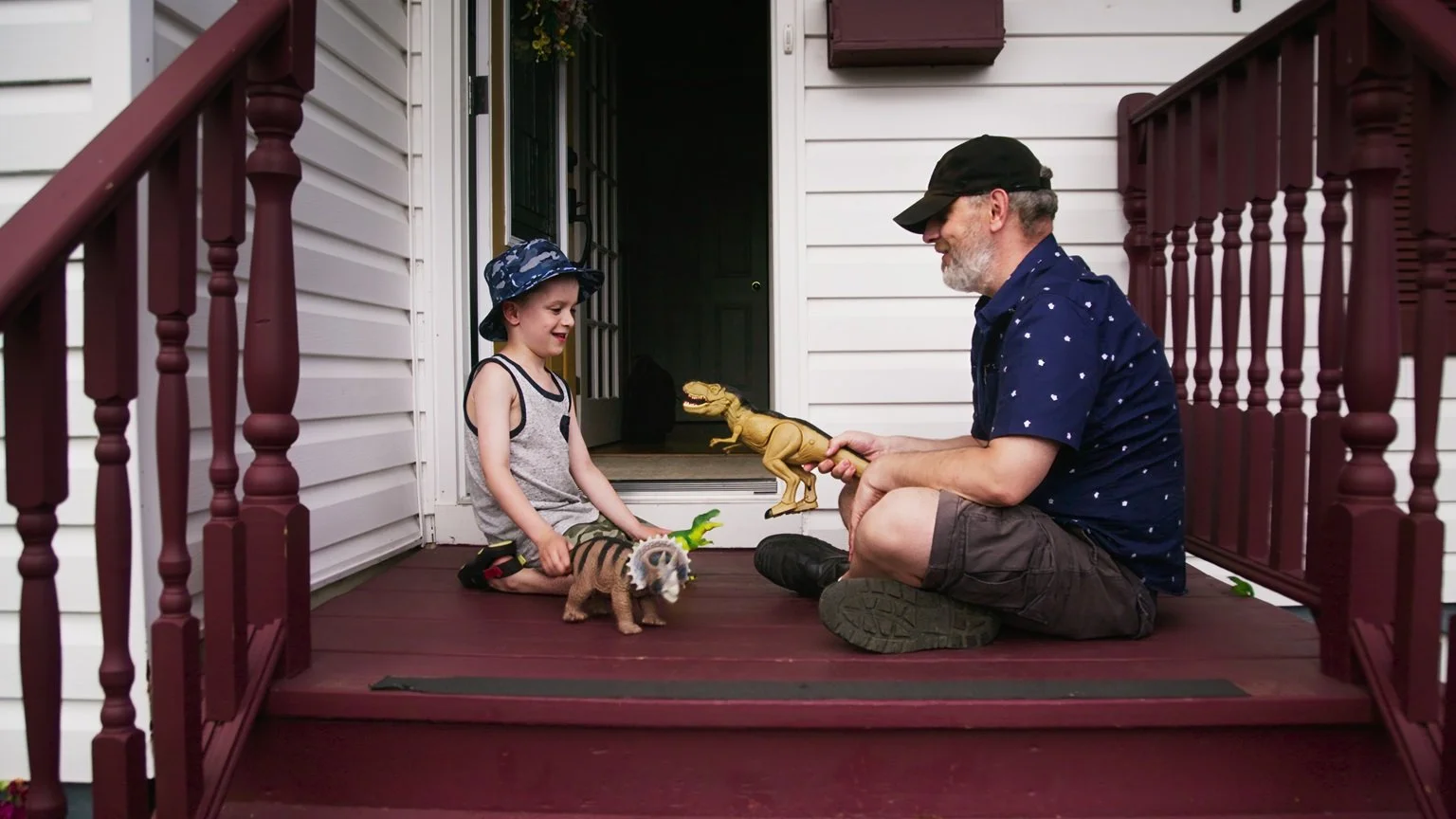Sons documentary looks at masculinity and what it means to raise a male child in today’s world
New NFB release by Newfoundland and Labrador filmmaker Justin Simms raises many questions about parenting in the era of Donald Trump and Andrew Tate
Sons.
The National Film Board of Canada presents Sons on January 18 at 2 pm at The Cinematheque followed by a discussion with Next Gen Men executive director Jake Stika
WHEN JUSTIN SIMMS’S son was born, Donald Trump had just been elected president. In an era of rising intolerance and hatred, when self-described misogynist influencer Andrew Tate has millions of followers, a question plagued the Newfoundland and Labrador filmmaker from the beginning: “Who do I think I am bringing another white male into the world?”
Sons is Simms’s new National Film Board of Canada documentary that centres on masculinity and what it means to raise a male child—and good person—in today’s upside-down world.
“I became a dad fairly late in life; I was 42,” Simms tells Stir in a phone interview from St. John’s. “When he was born was just when the Trump wave was turning and it was all over the news and it was kind of what everyone was talking about, and I just remember really going through a period of wondering about how to raise a young son in this kind of environment that felt like it was probably going to get a lot worse before it got better. Around that same time there was a raft of school shootings and I remember being really impacted by those and reading about the shooters and I was really struck by how lots of them came from what appeared to be stable homes. So I was just fascinated by the question of ‘How do we lose these boys?’ As I’m looking at my infant son with no ideology or belief system in there, at some point in the journey through childhood and young adulthood we seem to be losing them to something really dark. All of that was going through my head when my son was first born.”
The film features images and videos of Simms’s son, Jude, from just moments after he came into the world to those of him as a rambunctious five-year-old, playing with toy dinosaurs, basketballs, and war figurines. There are interviews with a handful of other fathers who all grapple with the meaning of masculinity and what kind of role models they want to be for their sons.
Simms describes masculinity as a chain that is the first and last thing a father hands down to his son. He interviews his own dad, a retired broadcaster, who divulges that he wishes he had been around more while Simms was growing up.
The documentary raises many questions, even probing the role that mass production and consumption have played in shaping today’s males. Why are most instances of gun violence perpetrated by men? How can we raise kids to be comfortable in their own shoes if we’re not? Can you be your child’s best friend? What is the measure of a “real” man? When Jude shows signs of stuttering behaviour, like his dad, will he be bullied at school or rejected by masculinity?
Sons also shares some troubling facts, like how boys trail girls in math in every developed country on Earth. Boys also fall behind in reading and comprehension.
“I really think the message of the film or the intent is when it comes to willing to be a better version of yourself, it starts with interior conversation within yourself, and I just really wanted to encourage that, to encourage men to really consider this stuff and to reach out and talk about it,” Simms says. “That was really my goal versus trying to present some sort of answer or ‘If you follow these three or four steps everything will be great.’
“Making documentaries is how I process things,” he adds. “It became more interesting and scary when I thought about turning the camera on myself, which I had never done in my previous work….I hope that people who have a stake in masculinity and male behaviour—which I think is basically everyone—might have a chance to run their own lives through the same kind of filter that I ran mine through in the movie.” ![]()
























